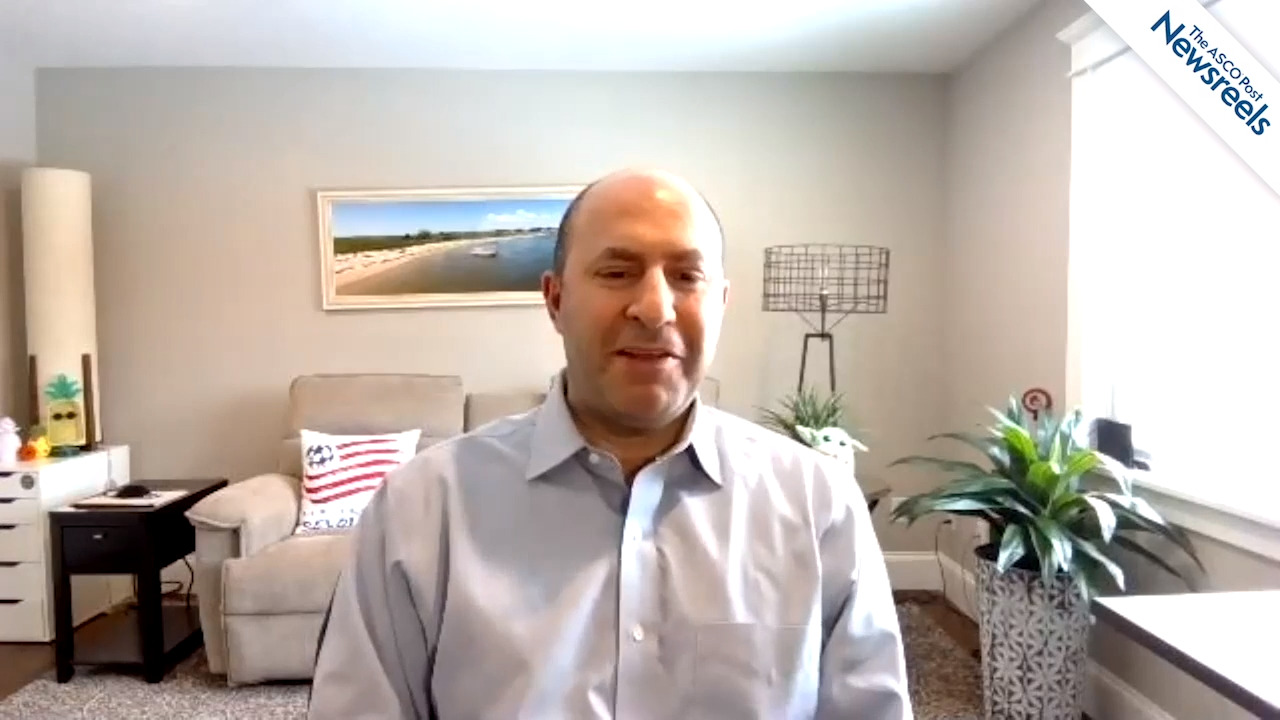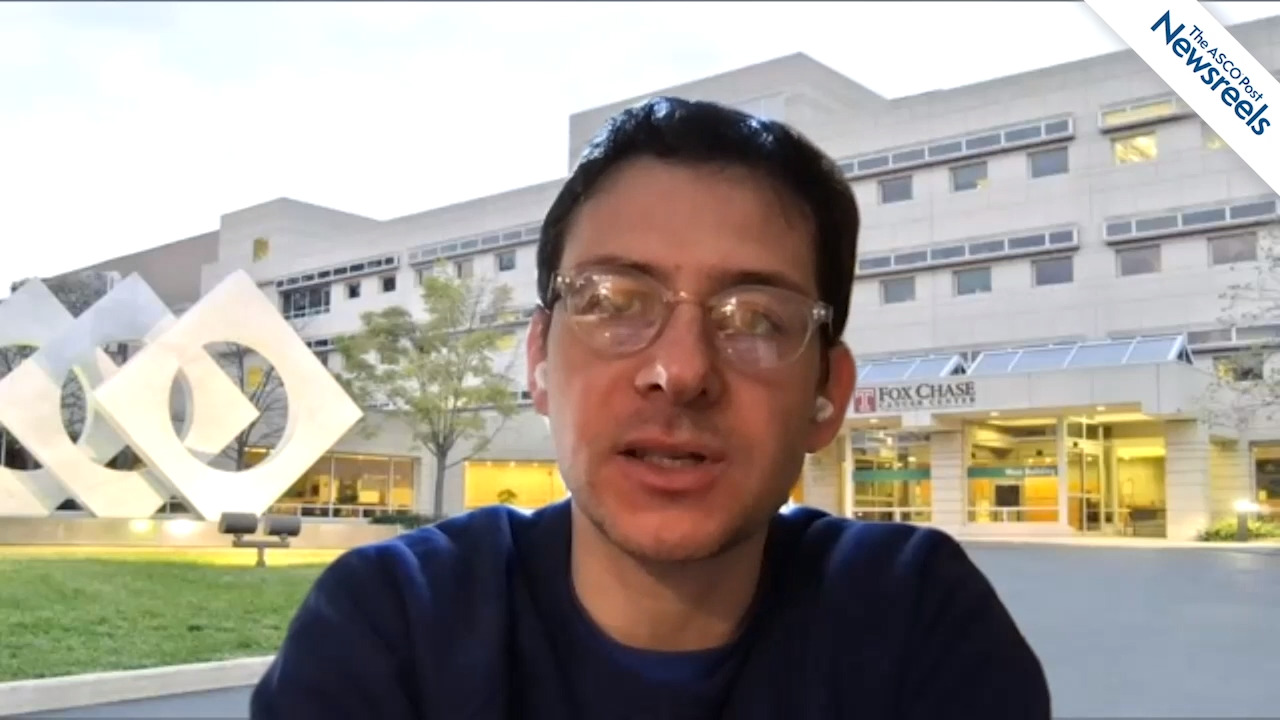Tracy L. Rose, MD, on Bladder Cancer: Gemcitabine, Cisplatin, and Pembrolizumab as Neoadjuvant Therapy
2021 Genitourinary Cancers Symposium
Tracy L. Rose, MD, of the University of North Carolina at Chapel Hill, discusses phase II results of gemcitabine and split-dose cisplatin plus pembrolizumab as neoadjuvant therapy prior to radical cystectomy for patients with muscle-invasive bladder cancer. The trial showed this combination treatment is generally safe and may improve pathologic downstaging, but further study is warranted (Abstract 396).
The ASCO Post Staff
Toni K. Choueiri, MD, of Dana-Farber Cancer Institute, discusses phase III results of the CLEAR study, which showed that for first-line treatment of advanced renal cell carcinoma, lenvatinib plus pembrolizumab improved outcomes vs sunitinib. Lenvatinib plus everolimus also improved progression-free survival and overall survival rates vs sunitinib (Abstract 269).
The ASCO Post Staff
Daniel M. Geynisman, MD, of Fox Chase Cancer Center, discusses phase II results from the RETAIN BLADDER study, which sequenced bladder tumor samples while treating patients with neoadjuvant methotrexate, vinblastine, doxorubicin, and cisplatin chemotherapy. The goal was to increase metastasis-free survival and also preserve the bladder and quality of life (Abstract 397).
The ASCO Post Staff
Elizabeth R. Plimack, MD, of Fox Chase Cancer Center, discusses key abstracts discussed at this year’s meeting on bladder cancer and offers her views on the latest trends and findings (Abstracts 391, 393, 434).
The ASCO Post Staff
Felix Y. Feng, MD, of the University of California, San Francisco, discusses study findings showing that molecular determinants may help clinicians select patients with nonmetastatic castration-resistant prostate cancer who may derive the most benefit from apalutamide and other androgen-signaling inhibitors (Abstract 8).
The ASCO Post Staff
A spirited discussion ensued when we asked Christopher Sweeney, MBBS, of Dana-Farber Cancer Institute, and Thomas Powles, MD, PhD, of Cancer Research UK Barts Centre, to compare notes on how they treat bladder, prostate, and kidney cancers.





